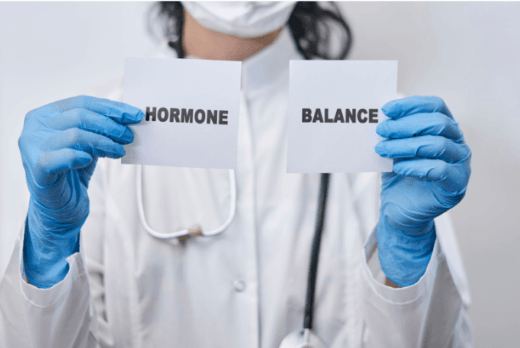Copyright © 2023 Tactus Health, USA. All rights reserved
Marketing and Web Design Powered by Cybriix Marketing
Testosterone Replacement Therapy (TRT) is a medical treatment designed to address the symptoms of low testosterone, a condition that can significantly impact physical, emotional, and mental health. For many, TRT is not just about addressing a hormone imbalance—it’s about reclaiming energy, motivation, and a sense of vitality.
This comprehensive guide will explore the science behind TRT, its benefits, potential risks, and practical insights to help you decide if it’s right for you. Whether you’re struggling with symptoms of low testosterone or are simply curious about the therapy, this article provides clear, well-researched information to help you take the next step.

TRT is a medically supervised treatment that supplements or restores testosterone levels in individuals with clinically low testosterone, a condition also known as hypogonadism. Testosterone is a key hormone responsible for various essential functions in the male body, including:
When testosterone levels drop, these processes are disrupted, often leading to significant physical and emotional challenges. TRT works to restore hormonal balance, offering relief from symptoms and improving overall well-being.
Low testosterone doesn’t happen overnight—it develops gradually and can manifest in various ways, affecting your daily life. Symptoms may include:
These symptoms can vary in severity, but when they begin to impact your quality of life, it’s essential to consult a healthcare provider for evaluation and testing.
TRT restores testosterone levels through controlled administration of the hormone. By supplementing your body’s testosterone, TRT can alleviate symptoms associated with low testosterone and help restore overall balance. Patients often report improvements in:
TRT is not a one-size-fits-all treatment. There are several delivery methods, each tailored to meet individual preferences and medical needs:
Each option has its advantages and considerations. Your healthcare provider will guide you in selecting the method that aligns with your lifestyle and treatment goals.
For those experiencing the debilitating symptoms of low testosterone, TRT can be life-changing. The therapy offers several well-documented benefits, including:
Like any medical treatment, TRT comes with potential risks, which should be carefully considered and discussed with your healthcare provider. These may include:
While these risks are typically rare, regular monitoring and follow-ups can ensure that any side effects are identified and managed promptly.
A successful TRT journey requires ongoing monitoring and communication with your healthcare provider. Regular check-ups help track progress, adjust dosages, and ensure the therapy is effective and safe. Key aspects of monitoring include:
With the right management, TRT can deliver maximum benefits while minimizing risks.
TRT is recommended for individuals with clinically low testosterone levels confirmed through comprehensive blood tests, significant symptoms such as persistent fatigue, low libido, or muscle loss that impact daily life, and medical clearance following a thorough consultation with a healthcare provider to rule out contraindications. Careful evaluation is essential to determine if TRT is appropriate, as it is not suitable for everyone.
While testosterone naturally declines with age, younger men with clinically low levels can also benefit from TRT. Additionally, TRT is not a quick fix—it requires consistent use, ongoing monitoring, and lifestyle changes to achieve sustainable and effective results.
While TRT can address hormonal imbalances, adopting a healthy lifestyle is essential for maximizing its benefits. Incorporate regular exercise, a nutrient-rich diet, and stress management techniques to support your overall well-being. These changes can amplify the positive effects of TRT and improve long-term health outcomes.
Testosterone Replacement Therapy offers a powerful solution for those struggling with the symptoms of low testosterone. By restoring hormonal balance, TRT can enhance physical health, emotional well-being, and overall quality of life.
If you’re considering TRT, consult a qualified healthcare provider to evaluate your symptoms, discuss your options, and develop a personalized treatment plan. With the right approach, TRT can help you reclaim your energy, confidence, and vitality.
Testosterone Replacement Therapy (TRT) is a medical intervention gaining popularity for its potential to enhance vitality and overall well-being. In this comprehensive guide, we will explore the intricacies of TRT, its benefits, potential risks, and how it influences physical and mental well-being.

Testosterone Replacement Therapy (TRT) is a medical treatment designed to address the symptoms of low testosterone in individuals. Testosterone, a crucial hormone, plays a key role in various bodily functions, including:
While generally safe, TRT is not without potential risks. Understanding these risks is crucial for informed decision-making. Common risks include:
Effective monitoring and management are essential for optimizing TRT outcomes. Regular check-ups and adjustments to dosage ensure that treatment aligns with individual needs.

Recognizing signs of low testosterone is the first step toward seeking appropriate treatment. Symptoms may include:
Indications for TRT include clinically low testosterone levels confirmed by blood tests and the presence of symptoms impacting daily life.
TRT works by supplementing or replacing testosterone in the body, restoring hormonal balance and addressing symptoms associated with low testosterone.
There are various forms of TRT, including injections, gels, patches, and pellets. The choice depends on individual preferences and medical considerations
Individuals experiencing symptoms of low testosterone, confirmed by medical evaluation, should consider TRT as a potential solution
A thorough consultation and evaluation with healthcare professionals are crucial steps in determining the appropriateness of TRT for an individual.
Dispelling common myths about TRT is essential for fostering understanding and informed decision-making among potential candidates.
In conclusion, Testosterone Replacement Therapy stands as a transformative solution for those seeking vitality and well-being. From debunking myths to exploring success stories, this article has covered the comprehensive landscape of TRT. Remember, consulting with healthcare professionals ensures a personalized and safe TRT journey.
Copyright © 2023 Tactus Health, USA. All rights reserved
Marketing and Web Design Powered by Cybriix Marketing